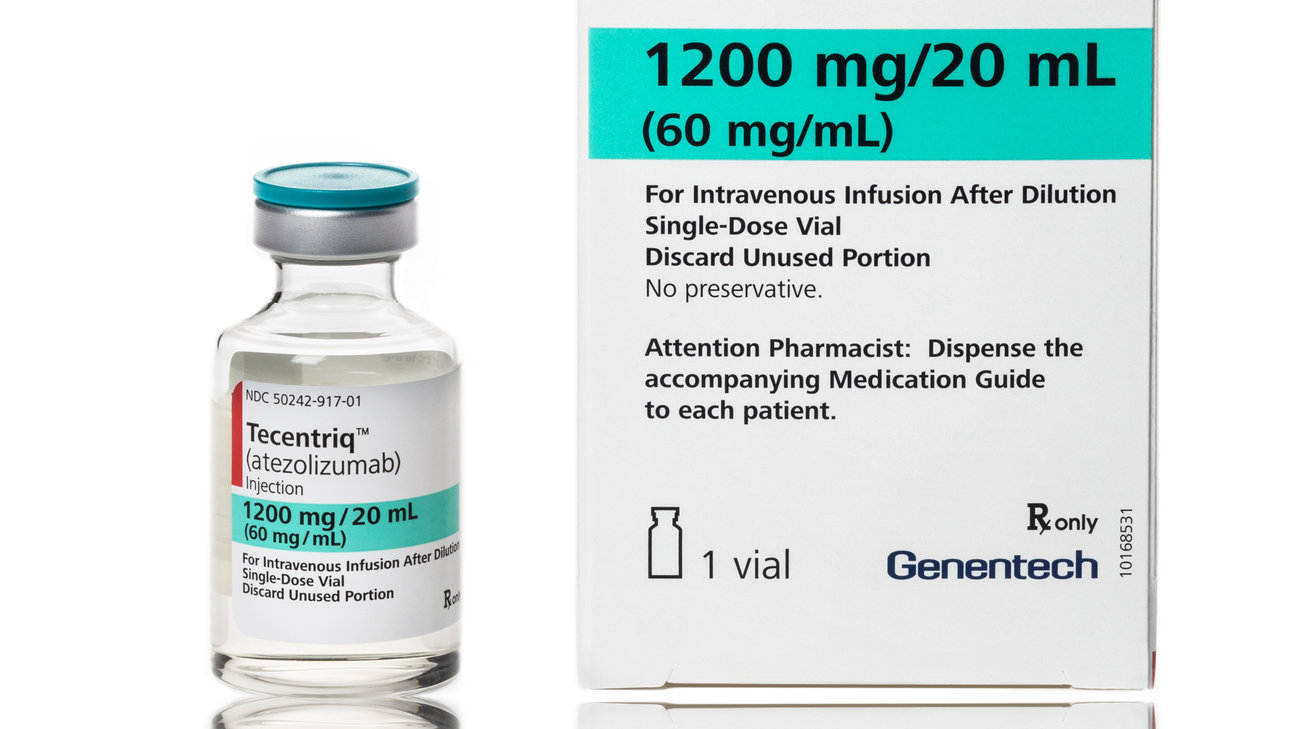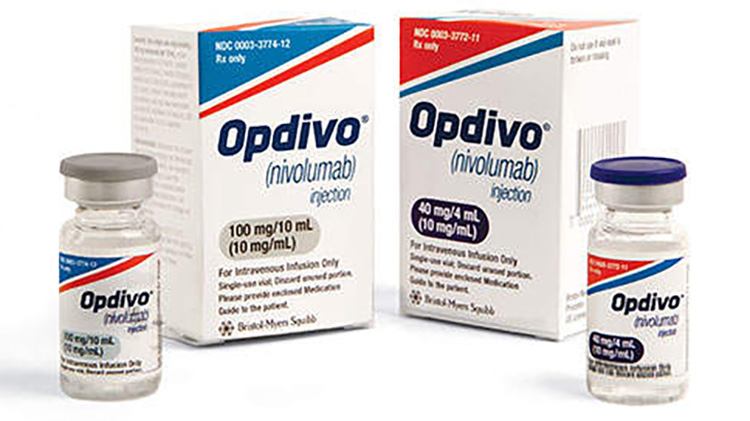Tecentriq (Atezolizumab) vs Opdivo (Nivolumab)
Tecentriq (Atezolizumab) vs Opdivo (Nivolumab)
Tecentriq (Atezolizumab) and Opdivo (Nivolumab) are both immune checkpoint inhibitors, but they target different proteins; Tecentriq blocks the PD-L1 protein, while Opdivo targets the PD-1 protein on T cells. Both medications are used to treat various types of cancer, including lung cancer and bladder cancer, but their specific FDA-approved indications may differ, so a patient's particular type of cancer and its characteristics could make one more suitable than the other. The choice between Tecentriq and Opdivo should be made in consultation with an oncologist, considering the patient's overall health, cancer staging, and potential side effects, as clinical trials have shown varying responses and outcomes depending on the cancer type and patient population.
Difference between Tecentriq and Opdivo
| Metric | Tecentriq (Atezolizumab) | Opdivo (Nivolumab) |
|---|---|---|
| Generic name | Atezolizumab | Nivolumab |
| Indications | Urothelial carcinoma, non-small cell lung cancer, triple-negative breast cancer, small cell lung cancer, hepatocellular carcinoma | Melanoma, non-small cell lung cancer, small cell lung cancer, renal cell carcinoma, Hodgkin lymphoma, head and neck cancer, urothelial carcinoma, colorectal cancer |
| Mechanism of action | PD-L1 inhibitor | PD-1 inhibitor |
| Brand names | Tecentriq | Opdivo |
| Administrative route | Intravenous infusion | Intravenous infusion |
| Side effects | Fatigue, decreased appetite, nausea, urinary tract infection, fever, constipation | Fatigue, rash, musculoskeletal pain, nausea, itchiness, diarrhea |
| Contraindications | None known specifically; use with caution in patients with autoimmune disease or pre-existing lung condition | None known specifically; use with caution in patients with autoimmune disease or those receiving immunosuppressive therapy |
| Drug class | Monoclonal antibody, Immune checkpoint inhibitor | Monoclonal antibody, Immune checkpoint inhibitor |
| Manufacturer | Genentech (Roche) | Bristol-Myers Squibb |
Efficacy
Tecentriq (Atezolizumab) in Lung Cancer Treatment
Tecentriq, also known by its generic name Atezolizumab, is a monoclonal antibody designed to target and inhibit the protein PD-L1. This protein is often expressed on the surface of cancer cells and can suppress the immune response, allowing cancer to grow and spread. In the context of lung cancer, Tecentriq has shown efficacy in treating non-small cell lung cancer (NSCLC), particularly in patients whose disease has progressed during or after platinum-containing chemotherapy. Studies have demonstrated that Tecentriq can improve overall survival in these patients compared to chemotherapy alone. Furthermore, Tecentriq is also indicated for the first-line treatment of patients with metastatic NSCLC whose tumors have high PD-L1 expression, as determined by an FDA-approved test, and do not have EGFR or ALK genomic tumor aberrations.
Opdivo (Nivolumab) in Lung Cancer Treatment
Opdivo, with the generic name Nivolumab, is another PD-1 immune checkpoint inhibitor that has been approved for the treatment of several types of cancer, including lung cancer. In NSCLC, Opdivo has been shown to extend survival in patients with advanced disease who have previously been treated with chemotherapy. This drug works by blocking the PD-1 pathway, which cancer cells can exploit to avoid being attacked by the immune system. By inhibiting this pathway, Opdivo can enhance the body's immune response against cancer cells. The efficacy of Opdivo has been established in multiple clinical trials, which have indicated improved overall survival and progression-free survival in patients with advanced NSCLC compared to standard chemotherapy.
Comparative Efficacy in Lung Cancer
When comparing the efficacy of Tecentriq and Opdivo in the treatment of lung cancer, it is important to consider the specific characteristics of the patient's disease, including PD-L1 expression levels and previous treatments. Both medications have shown significant improvements in survival outcomes for patients with advanced or metastatic NSCLC. However, the choice between these two drugs may depend on individual patient factors, the presence of specific genetic markers, and the overall treatment plan as determined by a healthcare provider.
Conclusion
In conclusion, both Tecentriq and Opdivo represent important advancements in the treatment of lung cancer, offering hope for improved outcomes in patients with this challenging disease. As immune checkpoint inhibitors, they harness the power of the patient's own immune system to fight cancer. The efficacy of these drugs in improving survival for lung cancer patients has been validated in clinical trials, although their use must be tailored to the individual characteristics of each patient's cancer. Ongoing research continues to refine the use of these drugs and explore their full potential in lung cancer therapy.
Regulatory Agency Approvals
Tecentriq
-
European Medical Agency (EMA), European Union

-
Food and Drug Administration (FDA), USA

-
Health Canada

-
Pharmaceuticals and Medical Devices Agency (PMDA), Japan

-
Therapeutic Goods Administration (TGA), Australia

-
Medsafe (NZ)

Opdivo
-
European Medical Agency (EMA), European Union

-
Food and Drug Administration (FDA), USA

-
Health Canada

-
Pharmaceuticals and Medical Devices Agency (PMDA), Japan

-
Therapeutic Goods Administration (TGA), Australia

-
Medsafe (NZ)

Access Tecentriq or Opdivo today
If Tecentriq or Opdivo are not approved or available in your country (e.g. due to supply issues), you can access them via Everyone.org.
How it works

Make an enquiry
Choose the medicine you want to buy, answer a couple of questions, and upload your prescription to speed things up. We’ll get back to you within 24 hours.


Make an enquiry
Choose the medicine you want to buy, answer a couple of questions, and upload your prescription to speed things up. We’ll get back to you within 24 hours.


Breeze through the paperwork
We'll guide you through the required documents for importing unapproved medicine, ensuring you have all the necessary information.


Get a personalized quote
We’ll prepare a quote for you, including medicine costs and any shipping, administrative, or import fees that may apply.


Receive your medicine
Accept the quote and we’ll handle the rest - sourcing and safely delivering your medicine.

Some text on this page has been automatically generated. Speak to your physician before you start a new treatment or medication.
Let's talk
If you have any questions, call us or send us a message through WhatsApp or email:
Contact us




